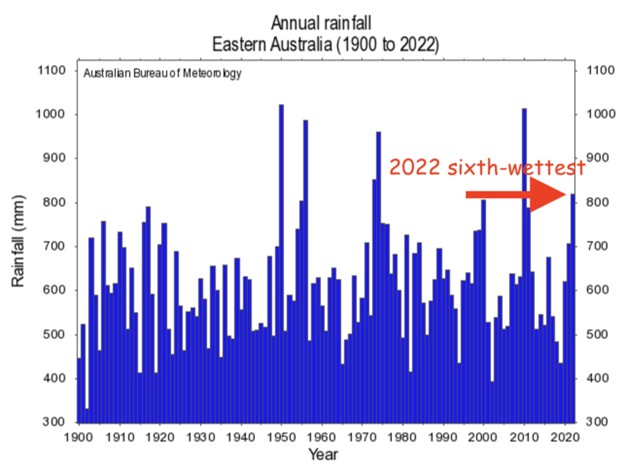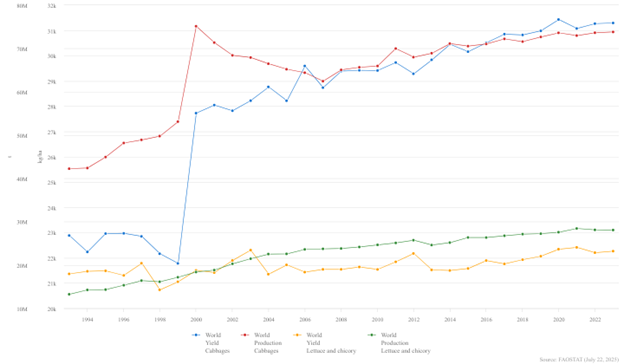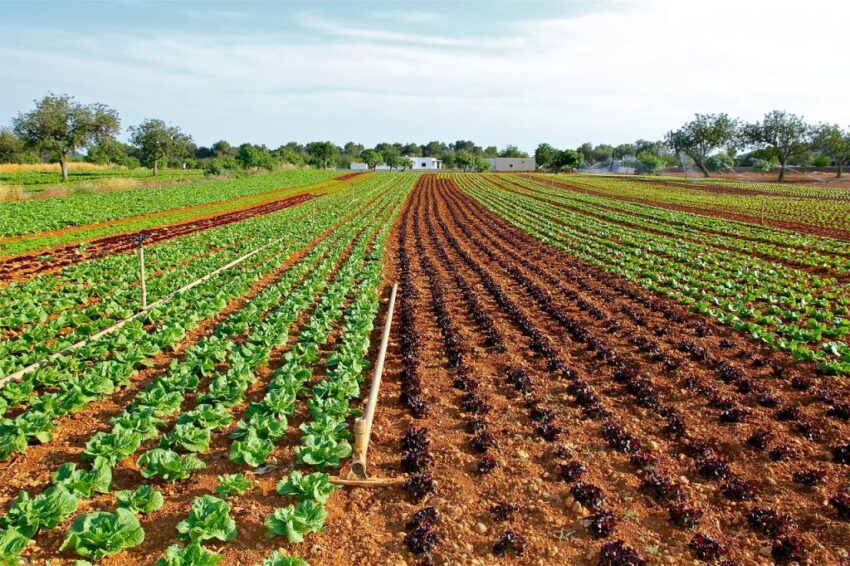A flurry of mainstream media reports, from Bloomberg, The Guardian, Financial Times, and CNN, among other outlets, claim that climate change is causing rising food prices “worldwide,” based on a single new study. This is false. Bad weather has always impacted crop production, and there is no actual evidence that extreme weather is increasing. Globalization of media coverage is simply making it easier to hear about bad weather elsewhere in the world, meanwhile crop production and yields globally continue to set records – a fact the same media outlets largely ignore.
Focusing on the coverage by Bloomberg, in an article titled “How Climate Change Is Raising Your Grocery Bill,” Bloomberg writers report on a study from the Barcelona Supercomputing Center (BSC) and the European Central Bank, which claims price jumps in certain food products are due to “extreme weather they say is linked to climate change.”
Bloomberg claims that consumers around the world “say they are feeling the effects of climate change on their grocery bills, making food unaffordable for some and posing a challenge for central bankers trying to tame inflation.” If true at all, this almost certainly the effect of media coverage like Bloomberg’s insisting that climate change is responsible, instead of observational evidence of crop production.
It is worth noting that the study uses the term “unprecedented” eight times in the mere four pages of content. To justify their use of the term unprecedented to describe global weather events in the last few years they reference ERA5 surface temperature data going back to 1940, and the standardized precipitation index from CRU going back to 1901. The reason why this is non-scientific and misleading will become clear when we go over the weather events they claim were so “unprecedented.”
Bloomberg discussed a few of the weather events mentioned in the study linking them to increases in the price for specific crops. They first highlighted increases in lettuce and vegetable prices in the United States, driven by droughts in California and Arizona, the former of which Bloomberg claims saw the “driest three-year period ever recorded.” Also mentioned was hurricane Ian. The problem, of course, is that California’s drought was anything but unprecedented. As discussed in the post “Mega-droughts and Mega-floods in the West All Occurred Well Before ‘climate change’ Was Blamed for Every Weather Event,” historical data and proxies show that California has experienced far more widespread and severe periods of drought in the past, some of which lasted as long as two hundred years.
In Asia, Bloomberg says a heatwave impacted South Korean cabbage production. While UN Food and Agriculture Organization (FAO) data indicate that cabbage production has been slowly declining after a massive spike in the 1970s, yields have remained stable or increased since 2000. This suggests that economic considerations or political decisions made about the relative benefits of growing cabbage versus other crops that could be grown, or uses the land could be put too, rather than climate, are responsible for changes in production.
Australia also saw high lettuce costs due to flooding in the eastern part of the country in recent years, but the year Bloomberg and the study highlight, 2022, was not unprecedented as they implied. In fact, 2022 was only the sixth “wettest” year on available Australian rainfall records, the wettest year on record was in 1950.

Bloomberg goes on to explain how the study allegedly “found that heat, drought and floods were occurring at an increased intensity and frequency,” which is at odds with available data and the UN Intergovernmental Panel on Climate Change’s 6th assessment report, which though it claims an increase in extreme heat has been detected, finds no emergence of increased flooding or drought in the current historical period.
In short, Bloomberg, and the other mainstream media outlets hyping the BSC report, failed to do any fact checking, failed to examine crop trends, and illegitimately linked individual weather events to long-term climate change, despite such events being common in history and there being no discernable trend in an increase in such events amid the slight warming that has occurred in recent years. To be clear, weather is not climate and, despite what unscientific attribution studies claims, no specific weather event can be tied to long-term climate change.
In short, none of the weather events Bloomberg referred to as unprecedented was in fact unique or even rare historically.
Concerning the crops, BSC and the media focuses on the most, lettuce and cabbage, data from the U.N. Food and Agriculture Organization show that between 1993 and 2023 (the most recent 30-year period of climate change for which we have available data):
- Lettuce (and chicory – the FAO combines them) production grew approximately 112 percent;
- Lettuce and chicory yields increased by about 4 percent;
- Cabbage production expanded by nearly 75 percent;
- And cabbage yield grew by more than 37 percent. (see the graph below)

Bloomberg does briefly concede that other factors, like El Niño, a totally natural phenomenon, played a role in weather in 2023 and 2024, impacting certain crops. The outlet also begrudgingly admits that “food price shocks typically turn out to be short-term in nature, because high prices incentivize more production, which brings prices back down,” though they try to say that coffee and cattle are exceptions to this rule. Although Bloomberg reports that coffee futures are high, there is no evidence that climate change is actually damaging global coffee production, as explained in Climate Realism posts here, here, and here.
Bloomberg ends with a warning from the study authors, claiming that “slashing greenhouse gas emissions and containing global warming will be key to reducing food price inflation risks,” but this ignores another key aspect of food costs. They are also impacted by the cost to produce food, like when governments increase the price farmers pay for fossil fuel derived pesticides and fertilizers or try to restrict their use. Fossil fuel derived chemicals increase yields with less labor and using much less land. Take a look at Sri Lanka for a good example of what happens when climate action is prioritized over food production.
Never before has it been so easy for the media to report on various weather disasters and crop failures globally, and this certainly has an impact on peoples’ perceptions as well as the ability for studies to try to draw connections that aren’t really backed by data. This Bloomberg piece is nothing more than climate fearmongering; taking disconnected crop shortages from around the world from localized weather events and trying to blame them on climate change, when the truth is that there have always been crops failing somewhere in the world at any given time.
The post Climate Change Is Reducing, Not Increasing Food Costs, Mainstream Media appeared first on ClimateRealism.
Click this link for the original source of this article.
Author: Linnea Lueken
This content is courtesy of, and owned and copyrighted by, https://climaterealism.com and its author. This content is made available by use of the public RSS feed offered by the host site and is used for educational purposes only. If you are the author or represent the host site and would like this content removed now and in the future, please contact USSANews.com using the email address in the Contact page found in the website menu.








